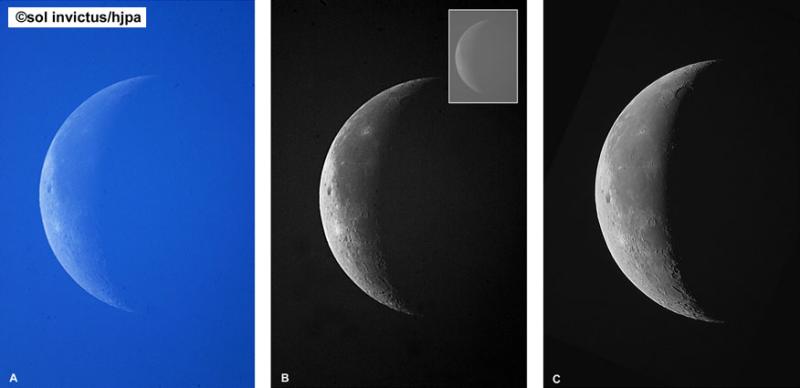The Moon by Day

Explanation:
Some people never notice that the Moon is visible during the day,
but it often is. Because the Earth's atmosphere is so bright and blue (from sunlight
scattered by aerosol particles) the daytime Moon is also blue and exhibits little
contrast. But as these images demonstrate, relatively good pictures can be obtained
during the day. The first image was taken in daylight with a normal digital camera
attached to a telescope. Image B was taken immediately afterward with the same equipment
but using the B & W mode. It was originally of low contrast (insert) but was enhanced
using Photoshop so that it resembles a night time shot such as Image C. There is
considerable detail in Image B, including Aristarchus, Grimaldi, Gassendi, Schickard
and many smaller craters. Arnold commented, A record obtained under optimum circumstances
will always be superior to one secured under less favourable conditions and subsequently
improved. But it would be interesting to experiment with day time imaging to
see how much can be captured in closeup images - a good project for the last two
weeks of a lunation!
—
Chuck
Wood
Technical Details:
Image A: Sept. 9, 2004. A color digital image recorded by a Nikon D1 camera attached
to a Starfire f/9 178mm refractor. The sensor was rated at the equivalent of ISO200
and the exposure was 1/350th second. Image B: Slightly later in BxW mode; enhanced
with Photoshop levels, curves and unsharp masking functions. Image: Taken at night
on a different date.
Related Links:
Photon Magazine
with complete article
Books
by HJP Arnold
